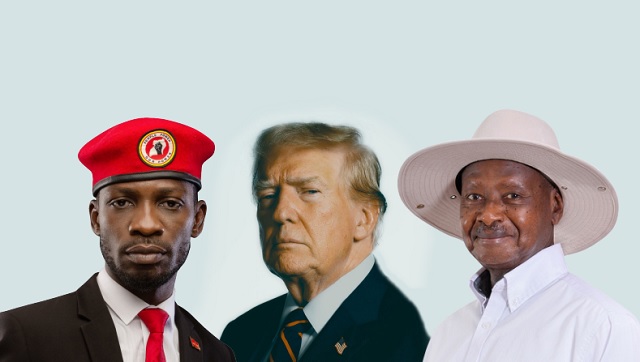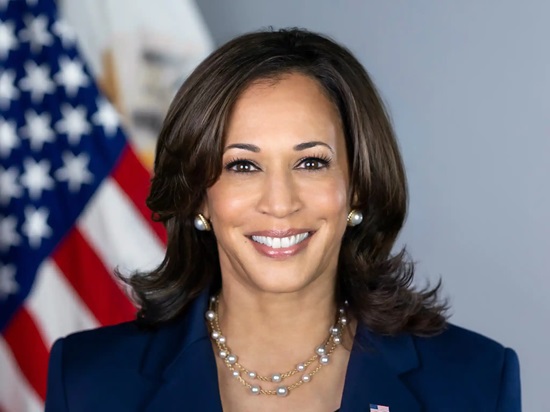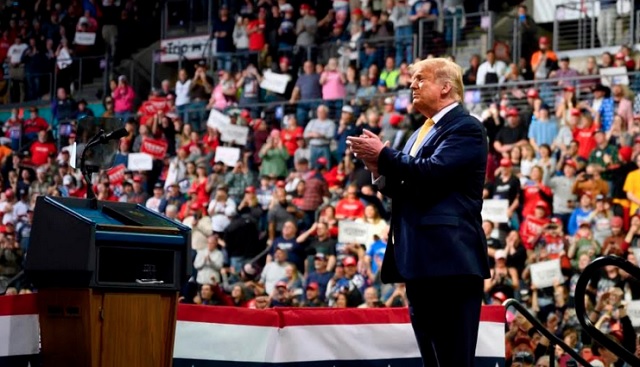
US election shows similarity of voter dynamics with Uganda
COVER STORY | IAN KATUSIIME | Donald Trump stormed back to power in a U.S. election that presented a math puzzle to pollsters, analysts and Democrats. Trump’s re-election victory against U.S. Vice President Kamala Harris saw him win all seven swing states on top of besting his performance in 2016 and also scooping more electoral votes than Joe Biden who beat him in the last contest in 2020.
The results gave Republicans a trifecta of the White House, Senate and House of Representatives. But the U.S. election also showed that voter dynamics tend not to be dissimilar in many countries.
President Yoweri Museveni and opposition National Unity Platform (NUP) leader Bobi Wine find themselves in the same math puzzle as they prepare for a likely rematch in the 2026 polls. Both congratulated Trump on his victory and both are in the middle of campaign mechanics laying the ground for the next election.
Museveni was in Kisoro district on Nov.12 for a by-election for the Woman Representative a day after Bobi Wine was in the same area for the same activity. Kisoro is yellow country. So it appears surprising that Bobi and his red caravan drew crowds from a district that has always voted NRM en masse.
The election was won by Akifeza Grace Ngabirano, an NRM-leaning independent candidate who beat her party’s flagbearer Rose Kabagyeni.
Trump has fought off challenges in his Republican Party the same way Museveni has triumphed over internal revolts in the National Resistance Movement (NRM) and equally similar to how Bobi Wine has battled a Mathias Mpuuga-led grumbling in his National Unity Platform (NUP).
Two years ago, Trump faced a potent threat from Ron DeSantis, the Governor of Florida, who vied for the Republican nomination and had promising poll numbers. But Trump’s Teflon Don persona and resurgent Make America Great Again (MAGA) movement proved invincible and he ultimately prevailed over the lesser known and younger DeSantis who suspended his campaign in January to endorse the former president.
For his first run in 2016, Trump defeated a catalogue of traditional Republican figures to clinch the nomination and earn a historic victory against Democrat Hillary Clinton.
In 38 years, Museveni has dispatched longtime comrades who eyed his throne but the last few years, he has faced simmering opposition from an unlikely source: his son Gen. Muhoozi Kainerugaba who leads the MK Movement.
The movement sprouted as an offshoot of the NRM, with ministers, MPs, artistes, youth, businesspeople trooping behind it and Museveni followed it with a passing interest until it registered as the Patriotic League of Uganda (PLU) in March.
Museveni recognising a deft maneuver when he sees one, attempted to scuttle PLU by appointing Muhoozi as Chief of Defence Forces (CDF) and naming his acolytes to cabinet effectively crippling their ability to organize.
NUP has also spent a year in an internecine war with its former vice president Mpuuga. The bust up was over a Shs500m service award Mpuuga took in 2022 while he was the Leader of Opposition in Parliament. With NUP and Mpuuga still exchanging fire, some say Mpuuga’s belly dance with NUP ended the moment the party president Bobi Wine dropped him from the position in 2023 in favour of party spokesperson Joel Ssenyonyi.
Currently, the political future of Mpuuga who was touted as a candidate in the 2021 election to represent varying interests, looks uncertain.
Data from the just ended U.S. elections show that Trump maintained his traditional base of white male voters, voters without a college degree and older Americans (above 45) according to AP VoteCast, which surveyed more than 120,000 voters in the U.S.

Trump also managed to make inroads among Black and Latino voters. He also won more votes than his Democratic opponent Harris among rural voters.
“Big shifts within small groups and small shifts within big groups” is how the AP VoteCast summed up the math of Trump’s return to the White House.
2026
Data from past elections in Uganda offers some insights into how voting patterns may look like in the 2026 elections. It almost comes up with the same pattern from Museveni’s performances against Dr Kizza Besigye four times and once against Bobi Wine.
It also indicates that like Trump, Museveni and Bobi will most likely reap the biggest vote margins in 2026 by holding onto their bases from 2021. In the last election Museveni scored his biggest margins from his home region in Western Uganda with 2.4million votes representing 80%. It was his biggest vote tally ever from a region and a climb up from 72% from the last election.
Bobi Wine’s campaign was fired up by his home region in Buganda at 64% where he almost doubled Museveni’s margins. The NUP leader is currently on a nationwide tour where he has canvassed the districts of Soroti, Nakasongola and Buikwe in a bid to replicate the fire that made him a formidable presidential candidate.
It’s a continued tour from last year when he visited the western region where he has the least prospects of votes. On the other hand in eastern Uganda, Bobi and his party did well trouncing Museveni in parts of Busoga which the latter always carried.
Museveni, the chairman of the NRM, has his eyes set on 2026 having already secured a host of party endorsements. He has also been on tours of his own promoting the Parish Development Model (PDM) meant to improve rural households across the country.

In the eastern region, Bobi Wine scored 34% against Museveni whose margins dropped from 58% in the 2016 elections to 54% in 2021, according to the Uganda Elections Data Portal (UEDP), a data visualisation tool by the International Republican Institute, which sources its data from the Electoral Commission.
Bobi Wine won in major districts of Mbale, Jinja, Iganga, Bugiri, Busia while Museveni retained districts in the Teso sub region which include Katakwi, Soroti, Bukedea, Pallisa while Bobi, new on the political scene, made in-roads in the Busoga and Bamasaba sub-regions which were traditionally Museveni strongholds.
According to 2021 election results, 500,000 votes separated Museveni and Bobi Wine in the eastern region. The performance in these regions is instructive because he was able to attract voters as a new candidate much as there was a lower voter turnout in both regions compared to 2016.
But it appears to be the Buganda region where the 2026 battle is being fought.
Bobi Wine got 1.9million votes which was 64% of the votes cast compared to Museveni’s one million votes at 33% in the area. This region has 16 districts which includes the capital Kampala, populated districts like Masaka, Mityana and Luweero where Museveni staged his guerilla war.
Bobi Wine beat Museveni in the district with a massive 70% where registered voters were 257,115 against Museveni’s 27%. Museveni had comfortably carried the district for years when he was challenged by Kizza Besigye, a Bush War comrade, who had stints in government before breaking ranks.
Museveni fought off a stiff challenge from the People Power leader to win districts in the outer belt of the Buganda region like Sembabule, Nakaseke, Rakai, Mubende but terribly lost the districts in Buganda’s heartland like Masaka, Mpigi, Gomba, Mukono and Kayunga which are also more populated.
In the Central region, voter turn-out fell from 61% to 54% according to the UEDP. In the Eastern region, it fell from 69%-60%. Many analysts attributed it to the violence that the state meted out on Bobi Wine’s campaign.

Some NRM ministers attributed their election losses in 2021 to the brutality the state unleashed to bring Bobi’s campaign to heel.
After he lost widely in the highly populated Buganda region to newcomer Bobi Wine, commentators say Museveni faces long odds in winning back Buganda based on a number of developments.
One of those was the decision by the government to dissolve Uganda Coffee Development Authority (UCDA), through a scrum in parliament that left maverick Mityana Municipality MP Francis Zaake hospitalized. Other MPs like Kampala Woman MP Shamim Malende were also injured. The cost of passing the bill involved suspected security agents entering parliament to evict opposition lawmakers who rose to speak up against the bill.
Kira Municipality MP Ibrahim Semujju said MPs went into the seating well knowing that operatives of the Special Forces Command (SFC) were in parliament. It harked back to 2017 when soldiers entered the House during a debate on the bill to remove the presidential age limit.
“There are several other entities that are still in place that we think should also be rationalized now that you are saying your concern is to save taxpayers money,” said Senyonyi, the Leader of Opposition adding that there are several other agencies that are not creatures of statute.
UCDA was a government body meant to provide an enabling environment for the millions of stakeholders along the coffee value chain to thrive. The bulk of coffee growers are in the central Buganda region.
“UCDA was giving opposition members of parliament seedlings and denying them to the NRM. That’s why the opposition was supporting UCDA,” Museveni said at an event shortly after the bill scrapping UCDA passed the House. The battle lines were drawn immediately after the President’s statement priming fears that the bill was never about coffee but a vengeful act against a certain constituency.
Many coffee farmers from the Buganda region were against the move to subsume UCDA under the ministry of agriculture. Butambala County MP Muwanga Kivumbi, the chairperson of the Buganda MPs caucus, led the fight against merging the agency. He told MPs that he had a fiery phone call with President Museveni.
Other analysts have warned that coffee has always been “hot politics” in pot shots against the President who showed that he was determined to dissolve the agency. Other issues that analysts say may shape the battle for 2026 are the unrelenting kidnaps that have gone on in the last four years. Some political leaders have been targeted in this including Kawempe North legislator Mohammed Ssegirinya and Makindye West MP Allan Ssewanyana.
Museveni is 80 years old and will clock 39 years in power in January. He faces constant scrutiny over his advanced age and his ability to steward the country with a bulging young population. His rival Bobi Wine faces the test of building on the gains of the red wave that clinched him 3.6million votes and sent 59MPs to the House.
 The Independent Uganda: You get the Truth we Pay the Price
The Independent Uganda: You get the Truth we Pay the Price





